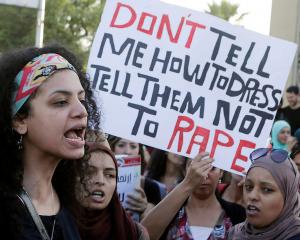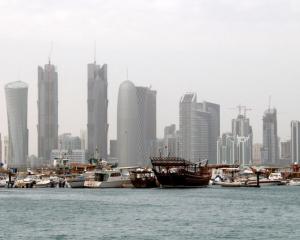Egypt's election committee is considering complaints about a presidential poll that has left voters with what many see as a painful run-off choice between an Islamist apparatchik and a throwback to Hosni Mubarak's era.
Both contenders are seeking to lay claim to the mantle of the "revolution" that toppled Mubarak 15 months ago, and to appeal to the many Egyptians who picked more centrist figures in last week's first round.
Hatem Bagato, the secretary-general of the electoral committee, said it was investigating complaints about the voting filed by four candidates - second-placed Ahmed Shafiq, who was Mubarak's last prime minister, leftist Hamdeen Sabahy, moderate Islamist Abdel Moneim Abol Fotouh and former Arab League chief Amr Moussa.
"The (election) results will be announced on Monday or Tuesday at the latest," Bagato told Reuters by telephone.
Figures cited by state media and party campaigns put Mohamed Mursi, a colourless Brotherhood insider, in a run-off with Shafiq, a bluff ex-air force chief who has sworn to restore security.
But Sabahy, who came a close third, challenged his placing. "We have information that conscripts voted illegally," he told a raucous crowd of supporters in Cairo late on Saturday.
Former U.S. President Jimmy Carter said he was broadly confident about the process. But his Carter Center monitors highlighted several irregularities, notably lack of access in the final aggregation of national results, harming transparency.
The polarised outcome has even led to suggestions from a range of liberal and other politicians - swiftly rejected by the Brotherhood - that Mursi should withdraw to allow Sabahy to go through to the second round.
"This is unconstitutional," Essam el-Erian, a leader of the Brotherhood's Freedom and Justice Party (FJP), said, adding that if Mursi quit at this stage, Shafiq would win by default.
An FJP source said the Brotherhood believed vote-rigging had helped Shafiq qualify for the second round, but that it had decided not to complain for fear the election might be invalidated and that a re-run might endanger Mursi's chances.
The source, who asked not to be named, said he believed this was a mistake, because it meant the Brotherhood was failing to show solidarity with other parties and that it would have no credibility if it appealed later against the result of the run-off.
INVESTORS SPOOKED
The divisive turn taken by the presidential election depressed Egyptian share prices on Sunday, the first day of trading since two days of voting ended on Thursday.
"Some investors are afraid that because we now have the two extreme elements confronting one another, the coming period will not be calm," said Osama Mourad, CEO at Arab Finance Brokerage.
The benchmark index dropped 3.5 percent by the close, its biggest single-day fall for nine weeks.
The Brotherhood, which already dominates both houses of parliament after earlier elections, wants to draw rival parties into a broad front to beat Shafiq in the June 16 and 17 run-off.
"We have to organise the movement on the street with the grass roots to support the revolution because the old regime is coming back with Shafiq," said a Mursi spokesman Yasser Ali.
"We are open-minded and open-hearted with all political groups, especially the revolutionary groups, to organise and form a coalition government soon after Mursi becomes president."
Ali said Mursi, 60, might meet Abol Fotouh, a former Brotherhood member who came fourth in the first round, and other leaders, possibly including Sabahy, later in the day.
Shafiq, 70, is also reaching out to voters, including the young activists who despise him as a figure from the past.
"Your revolution was stolen," he said at a news conference on Saturday. "I pledge to return its fruits to your hands."
The presidential election is supposed to close an army-led transition punctuated by violence and political disputes since a popular uprising overthrew Mubarak in February last year.
The turbulence has aggravated economic problems that will loom large for any president who takes over from military rulers who took charge when Mubarak fell and are expected to retain a strong role for years to come.
A Brotherhood victory in the presidential election could prolong a struggle with the military over the drafting of a new constitution, already mired in a political wrangle.
But a Mursi triumph is no foregone conclusion.
Many voters may stay away from the second round, seeing both candidates as unpalatable.
And many Christians, who make up about 10 percent of Egypt's 82 million people, are likely to swing behind Shafiq, viewing him as a bulwark against rising Islamist influence.
"The Brotherhood has not given us any assurances or promises to make us not fear for our freedoms and faith under their rule," said a Coptic church official, who asked not to be named.
Asked about Christian fears, Mursi told a television interviewer on Saturday night that "Egypt belongs to all," asking: "Who killed them in protests? Who prevented them from building churches? The old (Mubarak) regime, not us."










